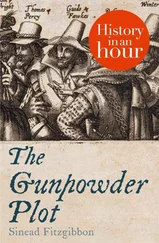On Saturday, 31 August 1566, ‘about 5 or 6 of the clock at night’, Queen Elizabeth I rode into Oxford. Her wooing of the city, and its university, had begun. 31
At the head of the royal procession were the Queen’s heralds. Behind them came the Earl of Leicester, in his official role as Chancellor of the university, then the Mayor of Oxford and his party of aldermen, the noblemen of the court, and finally Elizabeth herself. Her
‘chariot was open on all sides, and on a gilded seat in the height of regal magnificence reposed the Queen. Her head-dress was a marvel of woven gold, and glittered with pearls and other wonderful gems; her gown was of the most brilliant scarlet silk woven with gold, partly concealed by a purple cloak lined with ermine after the manner of a triumphal robe. Beside the chariot rode the royal cursitors, resplendent in coats of cloth of gold, and the marshals, who were kept busy preventing the crowds from pressing too near to the person of the Queen…The royal guard, magnificent in gold and scarlet, brought up the rear. Of these there were about two hundred…and on their shoulders they bore…iron clubs like battle-axes.’
Through the north gate they streamed. Down Northgate Street (now Cornmarket), where the scholars who lined the road sank awe-struck to their knees and called out Vivat Regina Elizabetha, hearing their cry taken up by the townspeople leaning from the windows and crammed precariously together on the roof-tops above them. To Carfax, where Giles Lawrence, Oxford’s Regius Professor, welcomed the Queen with an oration in Greek to which Elizabeth responded warmly in the same tongue, thanking Lawrence for his speech and praising it as the best she had heard in that language, adding coyly ‘we would answer you presently, but with this great company we are somewhat abashed’. Lawrence was transfixed.
On down Fish Street (St Aldates) the procession flowed, to Christ Church College, where the gate and walls were festooned with verses in Latin and Greek in admiration of Elizabeth and where, beneath a canopy borne by four Doctors of the university, the Queen was ushered slowly across the quadrangle into the cool and calm of the great cathedral. Here Elizabeth knelt in prayer as Dr Godwin, Christ Church’s Dean, gave thanks for her safe arrival in the city. To the sound of cornets the choir sang the Te Deum and then wearily Elizabeth slipped away through the gardens in the lengthening dusk, to her lodgings in the east wing, to prepare for this, her latest charm offensive.
It was the Queen’s first visit to Oxford. An earlier attempt two years before had been called off at the last moment when plague broke out in the city. But this delay merely ensured that by the time Elizabeth made her dramatic appearance at the north gate anticipation had grown to fever pitch. It also meant that those charged with arranging the visit had left little to chance.
On the Wednesday before the Queen’s arrival the Earl of Leicester and Sir William Cecil had ridden the eight miles from the Palace of Woodstock to Oxford, through the sluicing rain of a late summer downpour, to check for themselves that everything was in order. Leicester, as Oxford’s Chancellor, was host for the week and with his ambition to marry the Queen still intact at this date—just five years earlier, with his brother-in-law acting as go-between, he had approached the Spanish ambassador and offered to return England to the Catholic Church if Spain backed their wedding, a far cry from his later reincarnation as the scourge of English Catholicism—there was more at stake for him here than mere proprietorial embarrassment should Oxford’s hospitality fail to please the Queen. But for Sir William Cecil, Elizabeth’s Principal Secretary of State and her chief adviser on all policies relating to Church and foreign affairs, Oxford’s performance was a matter for greater concern still. 32
Each day of the royal visit Elizabeth and her entourage would attend debates and disputations, the art of which formed the basis of every student’s education. On the Tuesday a rising young Oxford star, Edmund Campion of St John’s College, would triumph in the Natural Philosophy Disputation, proposing ‘that the tides are caused by the moon’s motion’. Elizabeth, who in later life would be revered as the moon goddess, Cynthia, the ‘wide ocean’s empress’, was delighted with Campion’s speech; Cecil and Leicester immediately offered to become his patrons. *But it was indicative of the Government’s continued anxiety over the problem of Oxford’s religious insubordination that Cecil had provided the students in advance with a list of preferred subjects for these debates. Thursday’s Divinity Disputation took as its Council-chosen theme ‘Whether subjects may fight against wicked princes?’, allowing little scope for awkward theological reasoning. †It would have been a brave—and short-lived—undergraduate who dared to denounce Elizabeth’s break with Rome as wicked to her face; more embarrassing and more damaging still to the royal party would have been a spirited and unopposed defence of the Catholic faith. Oxford’s young students were to be given little opportunity to air their religious grievances. 33
But Elizabeth favoured the carrot over the stick whenever possible. In addition she held a deep and unshakeable regard for learning and was determined to see Oxford back in the vanguard of European scholarship after so many decades in the wilderness of religious upheaval. *She had a captive audience of some seventeen hundred students—all of whom had elected to remain at the university despite the term being officially over—and if any queen knew how to entrance an audience it was Elizabeth. 34
So Edmund Campion won his court patronage. George Coriat won half a sovereign. Tobie Matthew of Christ Church won the coveted title of Queen’s Scholar, which led to a lifetime of royal preferment and his eventual appointment as Archbishop of York. And all of them won the lavish praise and attention of a queen acutely conscious that her visit needed to serve as a fast-acting panacea for the ills afflicting Oxford. There was banqueting each evening and boisterous theatre in Christ Church’s Great Hall, transformed for the occasion into a gleaming, golden ‘Roman palace’. And then there was Elizabeth’s own speech, given at the church of St Mary the Virgin before the entire university on the final evening of her stay—a speech delivered in faultless, eloquent Latin, a speech in honour of Oxford and of academia, a speech that was welcomed and applauded with unqualified enthusiasm.
As Elizabeth rode out of Oxford the following day, surrounded once again by her glittering procession and by a city liberally hung with verses expressing grief at her departure, she had done much to heal the old wounds left by her father and her brother’s brutal and bullish enforcement of religious change. Her leave-taking was as sincere as it was warm: ‘Farewell, the worthy University of Oxford; farewell, my good subjects there; farewell, my dear Scholars, and pray God prosper your studies.’ Few could have done better under the circumstances. The only problem was it had all taken place several years too late.
Five years before Elizabeth’s visit a twenty-nine-year-old Lancastrian, a one-time student of Oriel College and former principal of St Mary’s Hall, had left Oxford for Flanders and the Low Countries. There, he was a welcome addition to the exiles of Louvain. And there, just seven years later, at the university town of Douai in the province of Artois, he would rent a ‘large…and very convenient’ house from where he would attempt to turn the ebbing fortunes of English Catholicism. ‘We cannot’, he would later write, ‘wait for better times; we must act now (to make them better).’ If the recalcitrant students of Oxford were to be summarily expelled from college whenever Europe threatened and if the men and women of England were to continue compromising their salvation in the name of political survival, then Dr William Allen had found the answer: use the former to educate the latter. It was a simple solution and it would prove devastatingly effective. 35
Читать дальше












